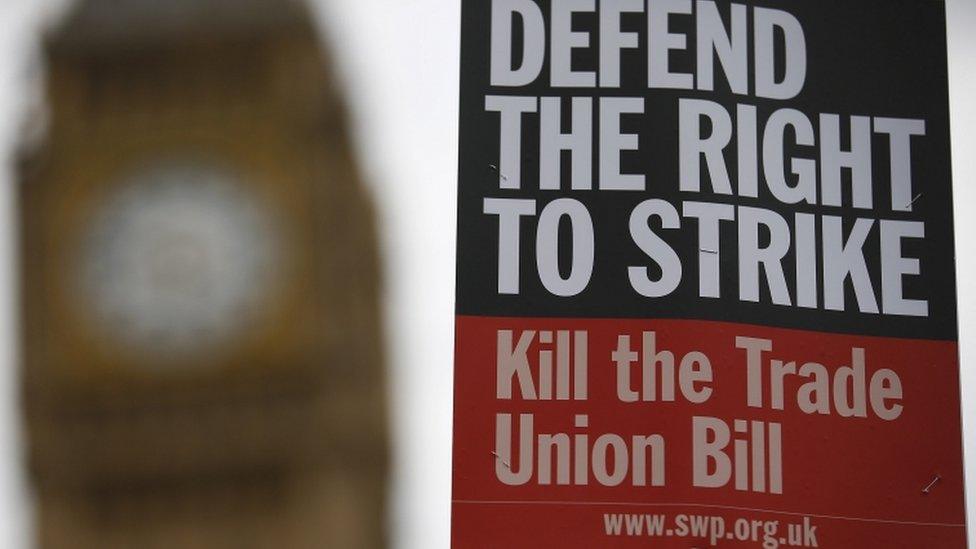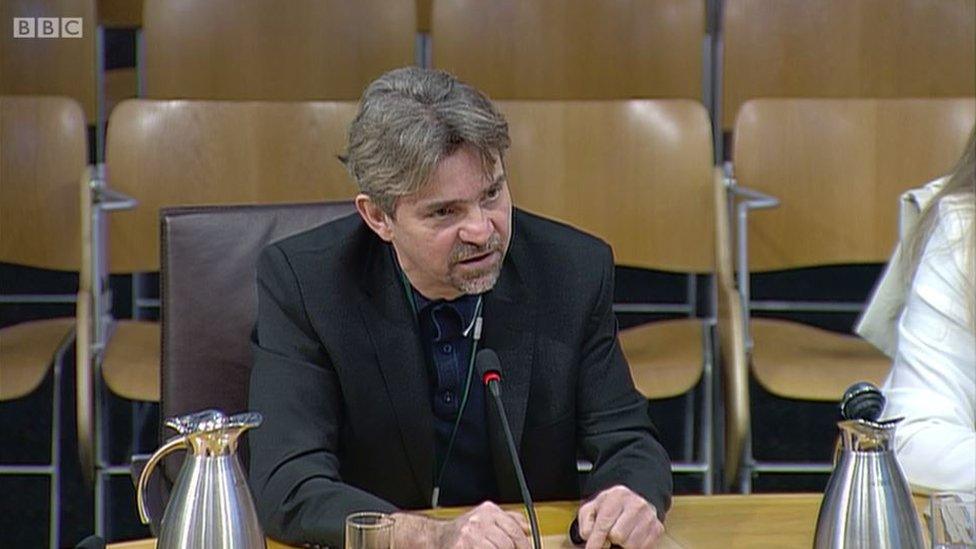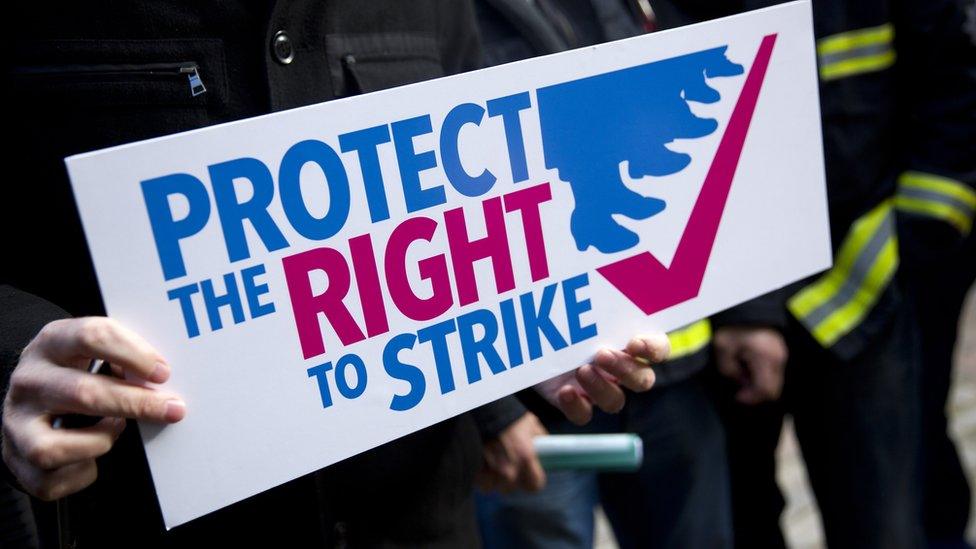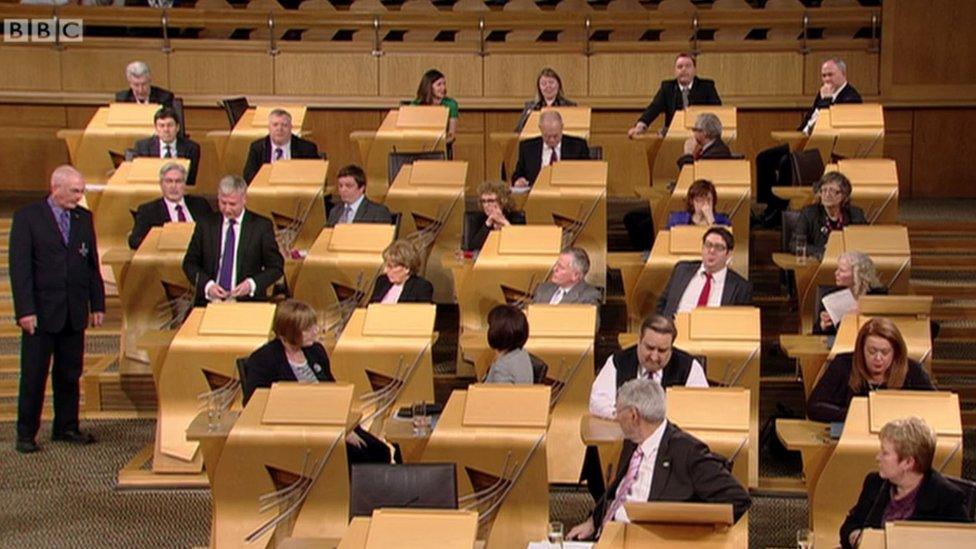Holyrood committee examines Trade Union Bill impact
- Published

The SNP and Labour have taken legal advice on ways to block the Trade Union Bill, which is being discussed at Westminster
A Holyrood committee has examined the potential impact of the UK government's Trade Union Bill.
The devolution (further powers) committee heard evidence about the bill's potential impact on industrial relations and services in Scotland.
The Scottish government and Scottish Labour have both made efforts to win permission for Holyrood to block the Westminster bill north of the border.
A chamber debate could be held on the committee's findings within the month.
The Trade Union Bill, which would make it more difficult to call strikes, has drawn criticism from across the Holyrood chamber.
SNP minister Roseanna Cunningham wrote to the presiding officer requesting a legislative consent memorandum, a special motion which could allow Holyrood to block the bill from applying in Scotland, although this was turned down by Tricia Marwick.
Scottish Labour has also weighed in, with leader Kezia Dugdale writing to the presiding officer to protest and MSP James Kelly was ejected from the chamber while challenging Ms Marwick.
The Scottish Conservatives do not oppose the bill, with MSP Murdo Fraser saying it is "clearly" a reserved matter and noting that Holyrood "should not be duplicating the work of the House of Commons".
A Scottish Labour MSP is thrown out of Scottish Parliament chamber in a row over trade union rights
Devolution committee convener Bruce Crawford said the bill raised "serious concerns for many members", and all three witnesses who were called supported removing Scotland from the bill if it was passed at Westminster.
Dave Moxham of the Scottish Trades Union Congress told the committee that the bill was an "ideological attack on the trade union movement".
He said the bill could actually make industrial action more likely, adding: "This is a bill that is designed to fix a problem that does not exist, with strike levels at a historic low."
Mr Moxham said the STUC was "disappointed that the presiding officer took the view that she did", saying he hoped a legislative consent motion could still be brought about, giving MSPs a vote on the bill.

Dave Moxham from the STUC said the bill was an "ideological attack on the trade union movement"
Bill Hendrey from the Convention of Scottish Local Authorities (Cosla) said there was "extreme concern" about the changes in the bill, saying there was no evidence it would modernise the relationship between local governments and trade unions.
He said Cosla's position was that the UK government should think again, as the bill is an "unnecessary and unjustified position, which could lead to more industrial action across Scotland".
Shirley Rodgers from NHS Scotland told the committee that industrial relations were "an absolute cornerstone to what we do", noting that it was important that trade unions were seen as strategic partners in the design of public services.
Following the session, the committee will produce a report which could be debated by the full parliament by the end of the month.
In response to the evidence session, the UK government said the Trade Union Bill was a "clearly reserved matter".
A spokesman said: "The Trade Union Bill relates to employment rights, duties and industrial relations, all of which are clearly reserved matters for the UK government under the Scottish devolution settlement."
He added that the bill included "modernising reforms" which would "ensure strikes only happen as a result of a clear, positive decision by those entitled to vote", saying "members of the public need to know they can get on with their lives without unjustified disruption".
- Published4 January 2016

- Published18 December 2015

- Published15 December 2015

- Published11 December 2015

- Published10 December 2015

- Published9 December 2015
